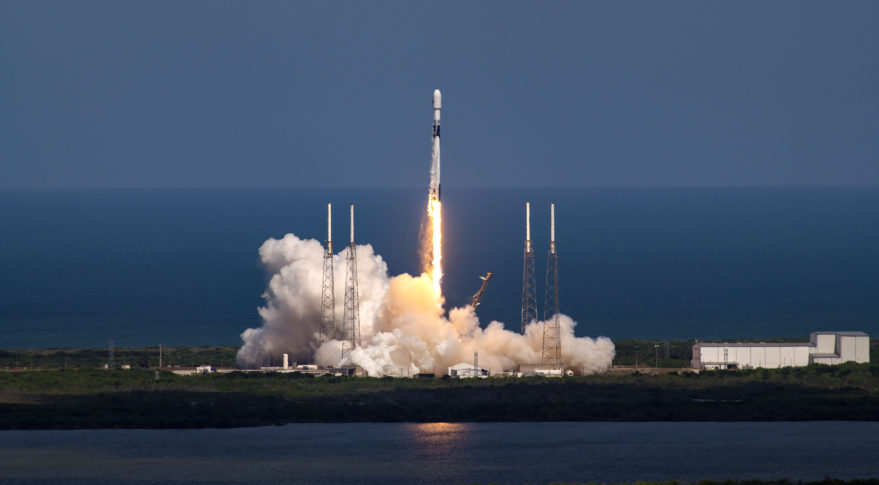SpaceX launches a U.S. Space Force GPS 3 satellite, recovers rocket’s first stage
SpaceX launches a U.S. Space Force GPS 3 satellite, recovers rocket’s first stage

WASHINGTON — A SpaceX Falcon 9 rocket launched a U.S. Space Force GPS 3 satellite on June 30. The rocket lifted off at 4:10 p.m. Eastern from Cape Canaveral, Florida,
About eight minutes after liftoff, SpaceX landed the Falcon 9’s brand-new first stage on the “Just Read the Instructions” droneship stationed in the Atlantic Ocean.
This was the Falcon 9’s 87th successful mission and the 49th first stage recovered by SpaceX. It also marked the first time the company recovered a booster following a National Security Space Launch mission.
The $568 million payload, the third GPS 3 satellite made by Lockheed Martin, separated from the rocket’s second stage approximately one hour and 29 minutes after liftoff. The satellite was deployed in a medium Earth orbit at an altitude of about 12,550 miles.
SpaceX’s first launch of a GPS 3 satellite was on Dec. 23, 2018. Following the June 30 mission, the company is under contract to launch three more GPS 3 satellites over the next two years.
Tonya Ladwig, vice president of Lockheed Martin Space Systems’ Navigation Systems Division said GPS 3 satellites provide three times greater accuracy and up to eight times more anti-jamming power than the earlier generation of satellites. It also adds a new L1C civil signal.
The new GPS 3 will join a constellation of 31 GPS satellites currently in operation. Each satellite circles the earth twice per day.
Lockheed Martin said the new satellite is responding to commands from program engineers in the launch-and-checkout facility in Denver.
Ladwing said the satellite’s onboard liquid apogee engines will propel it towards its operational orbit in the coming days. “Once it arrives, we’ll send the satellite commands to deploy its solar arrays and antennas, and prepare the satellite for handover to Space Operations Command.”
Comments
Post a Comment